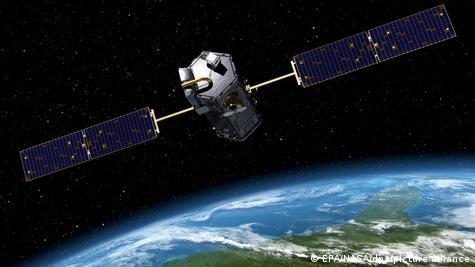
 |

The US is considering the threat of Russia deploying nuclear weapons in space. Now let's figure out what kind of weaponry it can be and why it is dangerous.
The threat of placing nuclear weapons in space suddenly became one of the most discussed international topics. It all started with the mysterious statements of the chairman of the Intelligence Committee of the House of Representatives of the US Congress, Republican Mike Turner. On February 14, Turner said that the committee had provided members of Congress with information about a "serious threat to national security" and called on President Joe Biden to "declassify all information regarding this threat."
This was followed by dozens of articles in the American media citing congressional and intelligence sources that specified this unnamed threat. Russia intends to deploy nuclear weapons in space to use them against satellites, the ABC News channel reported, in particular. The press secretary of the President of the Russian Federation, Dmytro Peskov, called these publications "tricks" of the American government. "The White House is trying, by truth or falsehood, to induce Congress to vote on the bill on the allocation of money (aid to Ukraine) - said Peskov.
How big is the threat and what kind of weapons might be involved
Placing nuclear weapons in space would violate the 1967 Outer Space Treaty, warns Heather Williams, director of the Nuclear Weapons Project at the Center for Strategic and International Studies (CSIS). "This is one of the last surviving nuclear arms control agreements - the rest of Russia has bypassed, withdrawn, suspended or deratified. This would further weaken the international nuclear arms control regime."
Russia plans to disable satellites in Earth orbit?
Military expert Serhiy Migdal recalled that this was one of the first such agreements between the USSR and the USA. "They believe that (nuclear weapons in space) are so dangerous, will increase the threat of a nuclear war with unpredictable consequences, that it is better to voluntarily abandon such weapons systems," he stated. Now Vladimir Putin "obviously has decided, if not to completely revive, then to resume work on the practical implementation of such a weapons system."
At the same time, Migdal emphasizes that work on such weapons can be primarily a lever of pressure in negotiations with the West. "I don't know how practically they want to bring to their senses and place (nuclear weapons in space), but Putin certainly can and, I think, wants to use such military projects, developments and threats as a tool of pressure on both the Americans and the Europeans." , - he says.

Not a nuclear weapon, but a device with a nuclear engine?
Analysts interviewed emphasize that very few details are still known about what data the US intelligence agencies claim the congressmen have. Maybe it's not even about nuclear weapons. "It seems unlikely that this is a nuclear weapon as such. It is more likely that it is a device with a nuclear engine and not a nuclear warhead," Almuden Azcarate Ortega, a space security expert at the UN Institute for Disarmament Studies, told DW in an interview.
According to her assessment, it can be a "kind of "jammer" that will interfere with satellite communication" working on atomic energy. "Or it could be a space tug with a nuclear engine that could potentially be repurposed to work as an anti-satellite device," the UN Institute expert continues.
Daryl Kimball, executive director of the Arms Control Association, spoke in favor of this version in an interview with Reuters. "Apparently, Russia is developing a system powered by a nuclear energy source that has radio-electronic warfare capabilities while in orbit," he believes.
It was about anti-satellite weapons that John Kirby, the coordinator of strategic communications at the US National Security Council, announced at a briefing in the White House on February 15. "While I am limited in what I can say about the specific nature of this threat, I can confirm that it is related to an anti-satellite capability that Russia is developing," Kirby said.
Such devices will not lead to a nuclear explosion in space, but damage to satellites could cause damage "to the services we use on Earth and rely on in our daily lives," Almudena Azcarate Ortega reflects. For example, GPS global positioning systems may be affected. Anti-satellite weapons can also damage military or commercial communications.
Author: GEximius